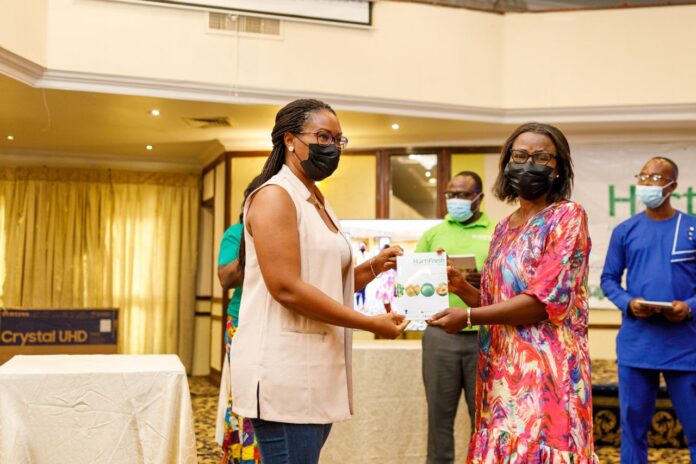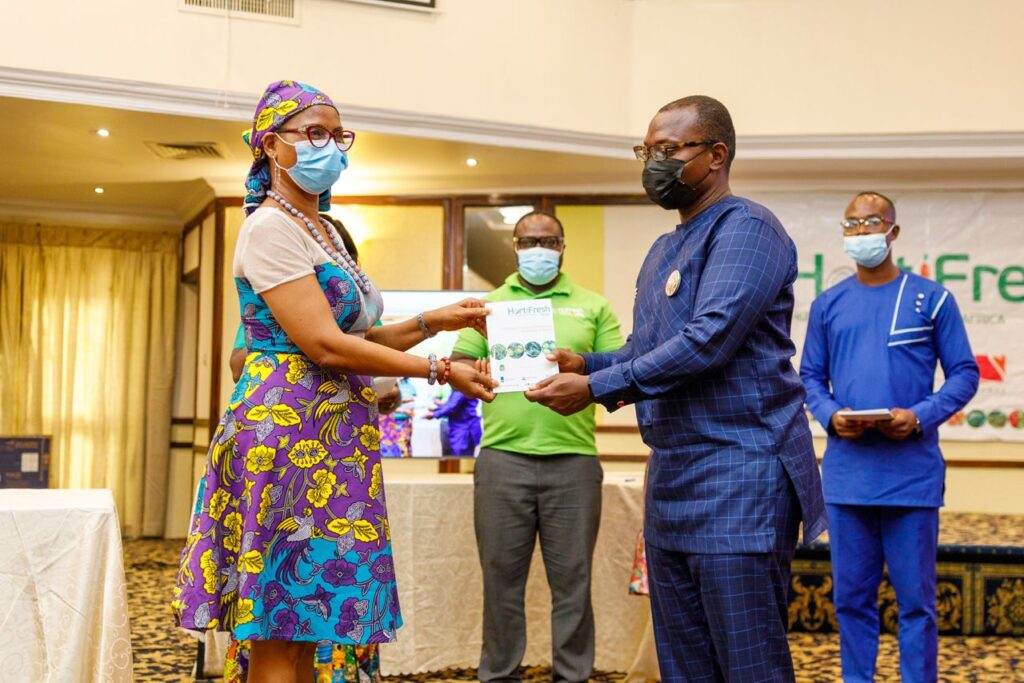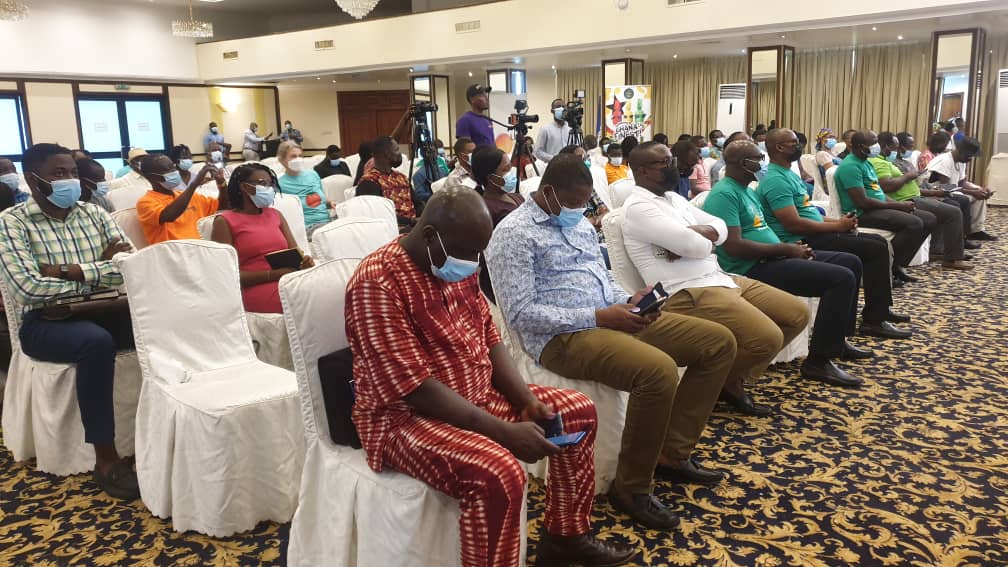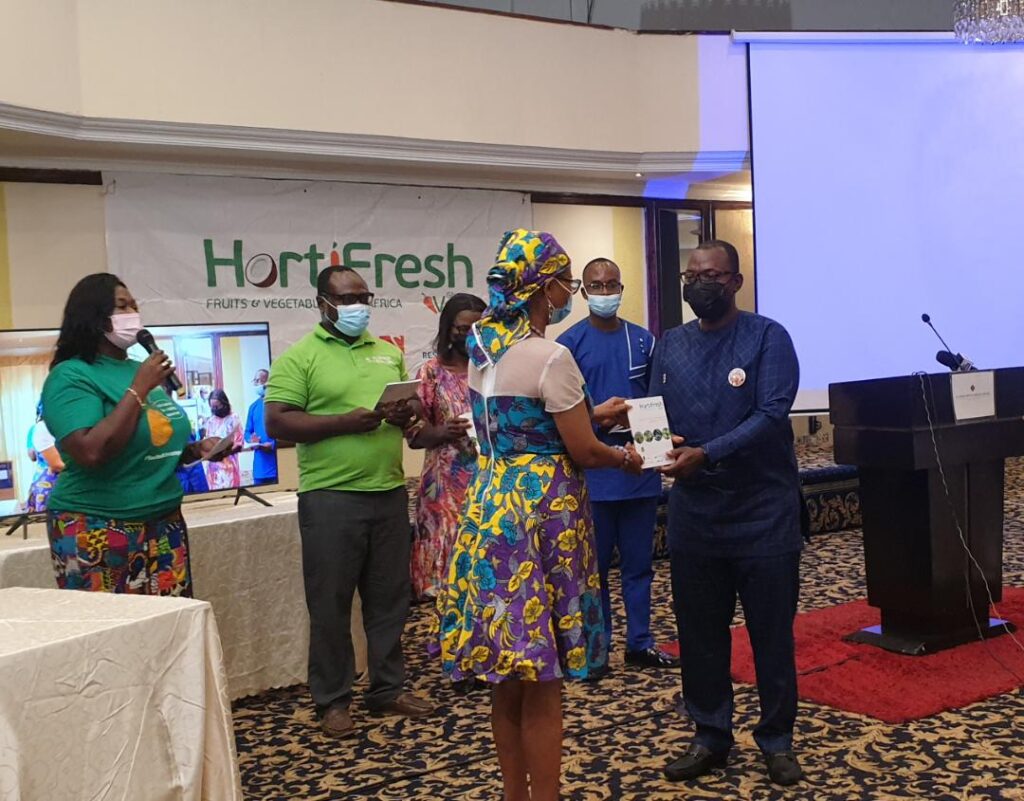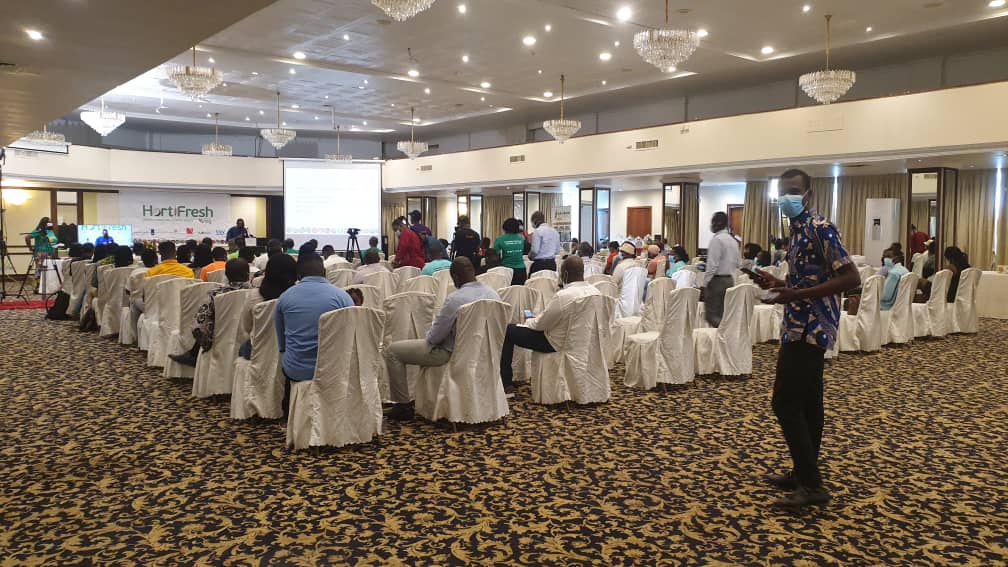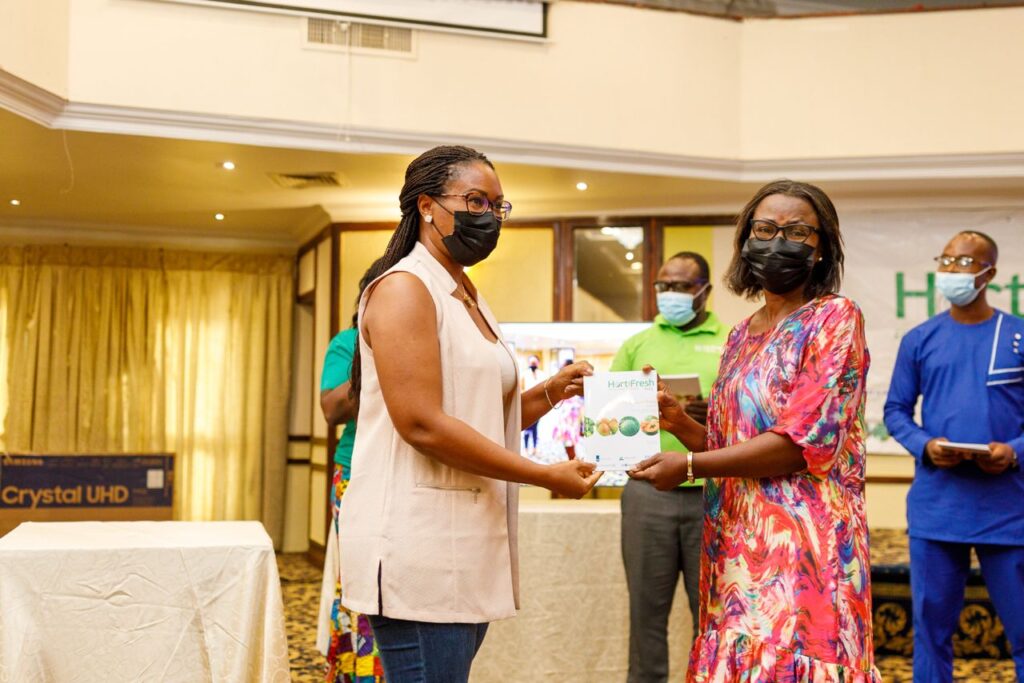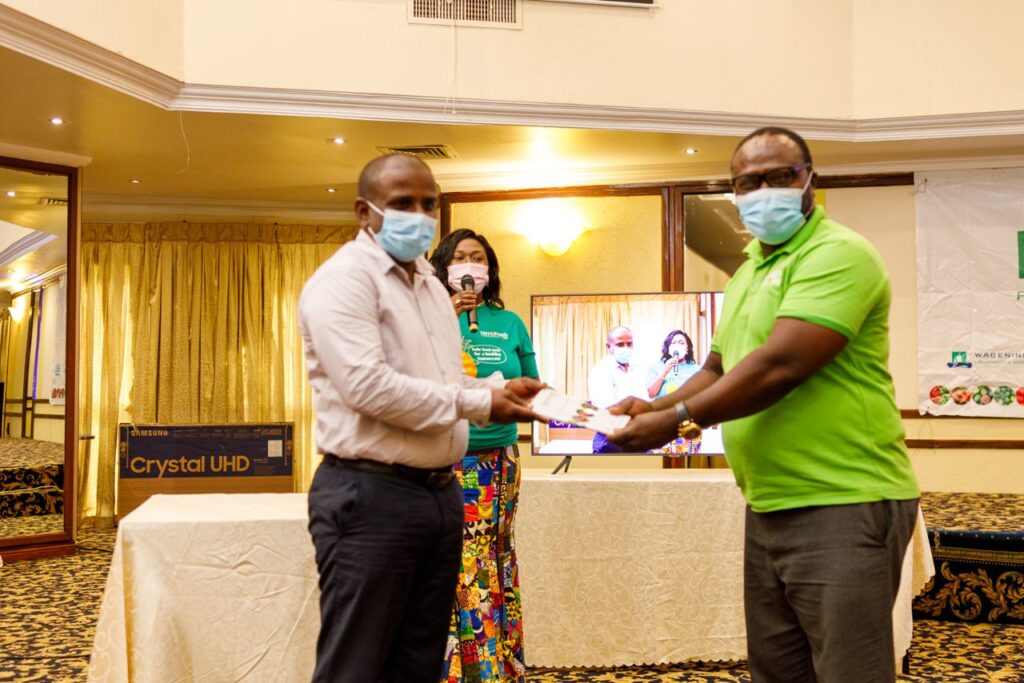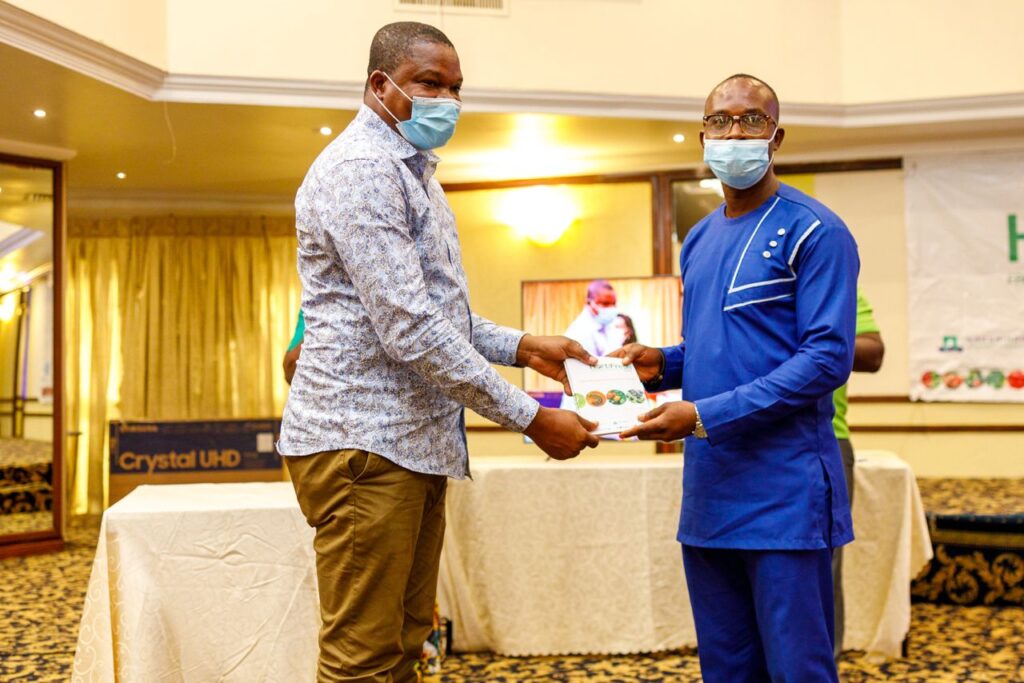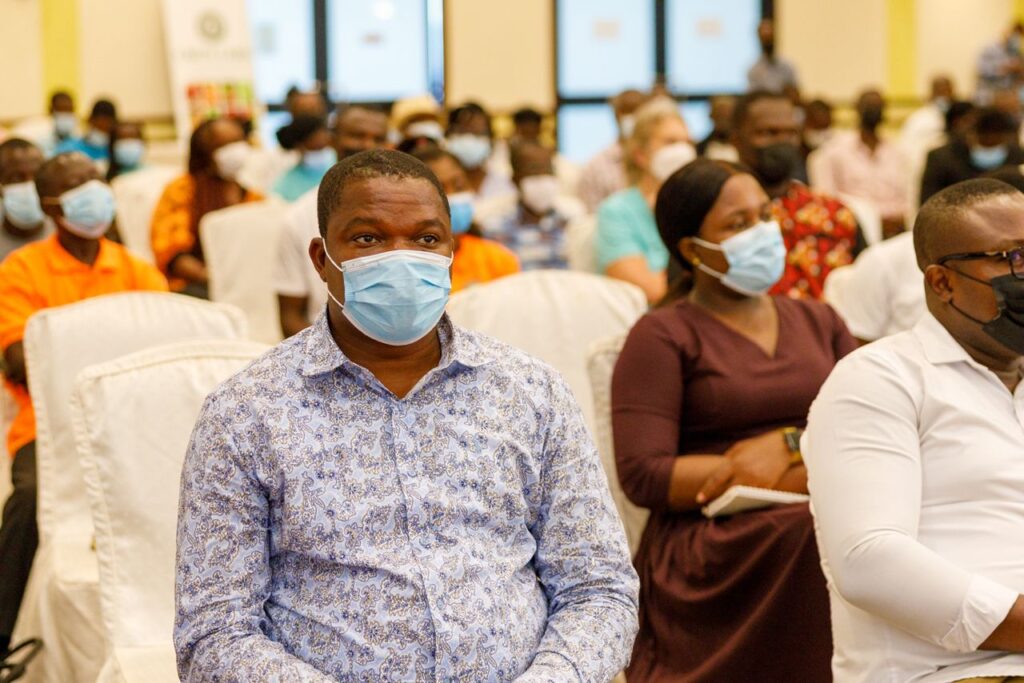HortiFresh West Africa, organizers of the annual fruits and vegetable fair climaxed the year with the release of reports from the food sector among other activities.
The report was launched on Wednesday, 8th December 2021 in Accra and mainly focuses on four key areas seeking to improve the agricultural sector.
The reports include Fruit Processing in Ghana, Catalogue of Selected Indigenous Vegetables in Ghana, Pest Management Guide for Onion and Pest Management Guide for Tomato.
The research was commissioned by the HortiFresh project, funded by the Embassy of the Kingdom of the Netherlands in Accra within the framework of the Agriculture and Food & Nutrition Security programme.
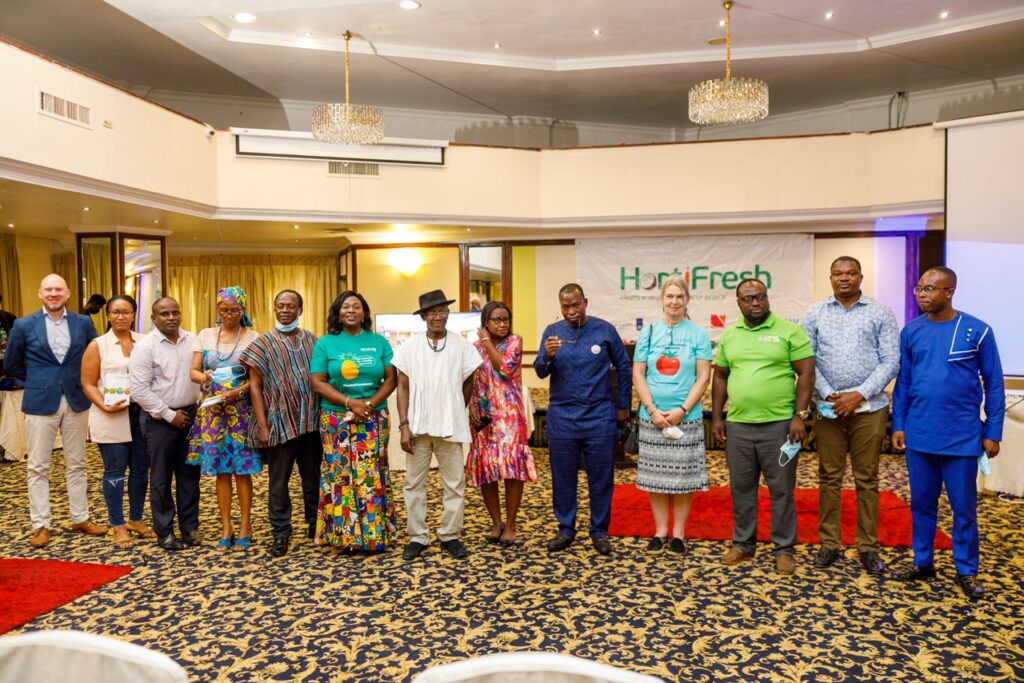
ON FRUIT PROCESSING IN GHANA
The programme had carried out a scoping study of the fruit sector in Ghana. The study identified that the processing sector is in various states of operation. A couple of the larger plants have seized operations. On the other hand, the seasonal glut of fruit i.e mango offers opportunities for processing, both the domestic market, as well as the export market, seem to have a high demand for processed fruit.
Based on the data gathered from the field, mango is grown in three ecological zones in Ghana, namely the southern belt, middle belt, and northern regions. About 90% of mango orchards grown are Keitt variety and the remaining 10% is Kent.
A projected total of 3,500 farmers cultivate about 18,645 ha. In terms of productivity, Ghana produces 13 t ha whilst productivity in Brazil and Peru are 21.7t ha and 12.8 t ha respectively. A look at productivity in the West African sub-region shows Ghana ranks the second highest in terms of yield/ha, followed by Burkina Faso and Senegal.
Citrus, Banana, Pineapple, Papaya, Passion fruit, and coconut have all thrived in the Ghanaian markets.
PEST MANAGEMENT GUIDE FOR TOMATO
The study describes the pest and diseases problems encountered by farmers during tomato production, from the planting stage, nursery establishment to harvesting.
It explains the life cycle of the expected pests and diseases and highlights their destructive stages and how farmers can control the pest at any stage of the life cycle taking advantage of the most vulnerable stage of the pest or early stages of disease manifestation.
Sweet Potato Whitefly, with the scientific name of Bemisia Tabaci, is distributed through widespread and the crop attacked during seedling and vegetative stages.
To prevent these, there is the need to implement good farm sanitation practices – regular weeding of bushes or alternative hosts to destroy breeding places. Management intervention should focus early on the detection of vectoro and its control.
The farmer should also deploy monitoring systems and introduce biological control applications.
These follow the same for the likes of South American tomato leaf miner, fruit borer – cotton bollworm, Spiralling whitefly, Serpentine leaf miner, etc.
PEST MANAGEMENT GUIDE FOR ONION
For Onion thrips, the main damage symptoms show that feeding results in stunted growth reduced bulb weight and predisposes onion plants to various fungal and bacterial pathogens. It also transmits Iris yellow spot virus (IYSV) which further worsens the damage they cause and ultimately result in complete crop failure.
To prevent all these, undertake pre-planting and post-harvest sanitation. Use trap crops and inter-cropping, apply sprinkler irrigation when possible and select the right onion variety. Monitoring and controlling systems should be applied as well.
Onion fly, Onion leaf miner, cutworms, leaf worms, and blister beetle should also experience the same processes.
CATALOGUE OF SELECTED INDIGENOUS VEGETABLES IN GHANA
This catalogue presents a great opportunity to the Ghanaian community, an in-depth knowledge into the available indigenous vegetables across all regions of Ghana.
Eating vegetables frequently, even in limited quantities, is beneficial to one’s health and well-being.
Unfortunately, average fruit and vegetable consumption among Ghanaians is far below the WHO/FAO 400g is recommended intake levels.
In Ghana, both wildand cultivated indigenous vegetables are used for consumption. However, most people are inclined to patronize cultivated exotic vegetables which are more expensive than the Indigenous ones.
In this light, promoting the consumption of indigenous vegetables among Ghanaians is key to improving the health of many.
African eggplant fruits, African eggplant leaf, Amaranth, Baobab leaves, Bean leaves Cocoyam leaves, Jute mallow, Kenaf, Moringa Leaves, Okra, Pumpkin, Roselle, Sponge gourd, Sweet potato leaves, Turkey berry, and West Indian nettle.
Each of these vegetables provides a lot of essential nutritional/ health benefits and economical benefits.
According to the Programs Manager of HortiFresh West Africa, Mrs. Sheila Assibey-Yeboah stated that the promotion of the fruits and vegetable sector has been challenging but a great course.
“We do a lot of stakeholder engagement and meeting, we do a lot of feedback sessions with the sector, and at any point in time, we do have a fair idea of things that need further probing and areas in the sector that need scoping studies conducted and new business pages ideas that needs to embark upon so this is just part of what we do.
“Some of these studies started in 2019 and we kept on working on them and we decide that before the end of this year we will do launching an event that was almost impeded with the COVID but then I am very happy we have been able to do it,” she said.
She described the implementation of ideas over the past years as successful.
“We are not investors, but we are implementers and sector facilitators. And for us having been on the scene close to 9 years from VegGhana to HortiFresh taking over Ghana, we are proud of what we have achieved, we are very confident that the inroads we have laid and the success that we’ve chalked in the sector in itself would push and enhance the sector to become more competitive, that is one of our many objectives,” she said.





















